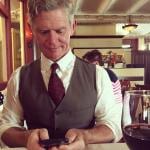How I feel when anyone mentions “self-care.”
This has been a long week—long because everything was discombobulated in one way or another. Eglantine’s two pins that are supposed to be holding her elbow in place have both become only superficially, thank heaven, infected and the bone has moved ever so slightly in a way that nobody likes. So we are on a new wound care routine as well as facing down a hefty antibiotic three times a day. As with everything in my life, I’m learning lots more than I want to.
One
Our increasingly therapeutic and anxious culture borrowed the term Self-Care from the medical community. Somebody told me this a long time ago, and I, even though I believed them, continued to object (and still do) to the way the term has morphed and changed to marry selfishness with, well, selfishness, and in so doing, corrupting the rich and beautiful category of “Care.”
Two
Little Eglantine’s (not that little, not her real name) injury has been interesting and hard because she is generally a capable energetic person—like all my children—who likes to do things for herself. She can whip through the kitchen like nobody’s business, or conquer a difficult paragraph in a book, or face down division, or fold up a heap of laundry and put it all away. She is a little bit combative and adores the sense of achievement.
Three
My parenting posture has always been that I ought never to do for anyone what he or she can do for him or herself. I don’t leap up to get glasses of water or pour milk into bowls of cereal. I don’t go around making people’s beds. I don’t—too often—save people from themselves (well, sometimes I do). On the contrary, in the spirit of a different continent and different age, my children come to me and ask me if they should make another bucket of tea, or, as they are making breakfast for themselves, would I like some. I always say yes. (Really, maybe I should write a parenting book.)
Four
So, confronted with this wounded and—were this another place and another time—crippled and even perhaps shriveled arm…
Indeed, I have been turning over Jesus’ various healings in my mind the last few weeks. The man with the withered hand? Was it because he broke some bone as a child? And it just didn’t grow any more? Or injured it in the course of some necessary task and it just never healed, and shriveled, withering away to uselessness? What happened? And of course there were no surgical pins, or X-rays all those thousands of years ago. How strange it would have been for a grown man, having endured all those years the pain and inconvenience and certainly shame, to come up to Jesus for so brief a moment, and then to go away again with it all whole, with a strong hand and an outstretched arm. No wonder no one obeyed Jesus’ command not to tell anyone what had happened—the leper, the lame, the blind man, the deaf man, the dead girl—no one would have been able to keep silent….
Five
Unhappily, I am seeing more personally what “self-care” is meant to be. Little Eglantine is strongly motivated to care for her own arm. She gets the bandage on and off. She swabs the pins with peroxide mixed with water. She directs the application of tape. She answers the questions of medical professionals in a clear, even voice while I, soul crushed, wither in my chair.
Six
The point of “care,” whether it’s for oneself or some other person, is to face reality and then, with all gentle kindness, especially in the face of pain, to strengthen the hand of the person, however weak that hand is, to do whatever it is that she can reasonably do for herself.
This is such a far cry from the “treating/I deserve it” cultural pool in which we are all swimming, where helpless indulgence of one’s own small, peculiar dysfunctions and selfishnesses are traded for facing the truth about what is good and right and true and healing.
Seven
We all go about with some kind of limp. Eglantine has picked up the habit of smacking her lips together when she anticipates pain. The stress of her fractured arm has rippled out through to each of us in various and sundry ways. Everyone is “fractious,” on edge, trying to sort out the basic functions of life when one person isn’t her usual self.
Really, as I have said all along, putting the “self” in front of the “care” is the wrong way around. The self part is there naturally, without thinking, instinctually. The hardest thing in the world is to reach over and care for another in a way that doesn’t hinder her healing, growth, and ultimately joy, as one does so naturally for oneself.
But also, for real, this year I’m watching Hallmark Christmas movies. So sue me.












